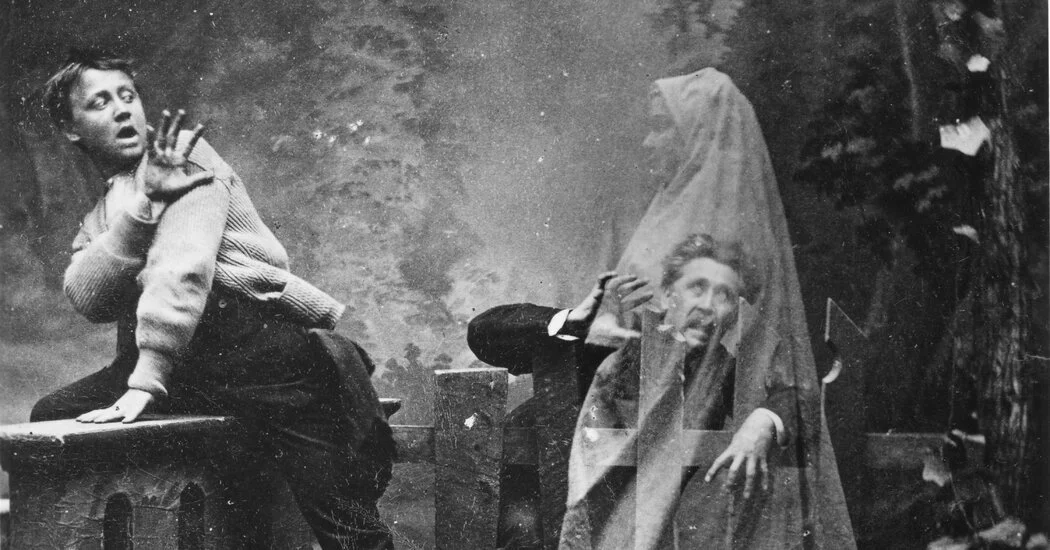Theaters have ghosts in the “wings” -- the sidelines of the stage, the place where actors wait, a place of imaginary worlds -- ghosts hang out there, and trust me, they have something to say. They take notes. They want you to get to the truth, please, just get to the truth!
When I decided to write The True I knew that I was haunted. I knew that writing about the empty places within me, and the fear I let spread into my life when I believed a con artist’s lies about the death of my lover, was the very phantom I most needed to share in language. And, since I grew up in a theater I was sure that I would bring the ghosts into the story, and that they would remain there until I figured out how to find the life that got buried in death.
Isn’t that the case for writers everywhere? We house our stories in our bodies like plays in a theater, and then, when we find the strength, put words to our inner ghosts -- to those voices -- our voices -- that won’t let us go. Recently, I had a conversation with the poet, Chiwan Choi who suggested that writers create stories that intrinsically create ghosts, he says, “what are writers if not ghostmakers?” I’m not sure if I am a ghostmaker, perhaps that is truly the gift of poets, though I do know that as a theater person, haunted by those who left us too soon to AIDS, that I am walking through the world hoping language will help me reconcile with the dead.
Though, Americans are generally eager to be scared. We like horror movies. We are obsessed with heaven and hell (for me, another form of horror). We rally around the phantasmagorical, yet we cannot truly accept our own history. In this way we are a totally haunted country, and our writing reflects that conflict. We fight over the truth of our past. We battle with our own language, something that slips in and out of meaning in an abbreviated social media world. Though, I think the ghosts in the wings can teach us a lot about how to focus on our stories. Here’s what I have always heard my theater ghosts say when I am writing:
Do you really feel that?
Where are they coming from? Where are they going? What do they want?
Stop thinking, just breathe.
Theater ghosts, perhaps, and especially because they are dead, want you to be present. They want you to notice the small stuff, and they want you to keep it real, and for god's sake, stay in the action of what you are writing, not the idea of what you are writing. It’s in the presence of my ghosts that I find I can stay in the life of a story, sit patiently for the long novel to release herself -- it’s in knowing that I am alive (and not a phantom myself) that I have a duty to record how the world shapes itself for me in the crevices I find myself; in the spaces and time I have left.
Though it’s not easy to be present since most of us are running from death. It could be that we don’t want to die yet. It could be that we haven't figured out what to do with our past. It might even be that death is a bit too appealing. But we are running. And, so, writing, the very slow art of gathering the syntax of our fear is a good way to come into parallel play with the dead.
Yes, perhaps that is how we live in this current world that is glutted with dead ends, dead ideas, dead policies, dead jobs, dead love, dead textures all sanded down by soundbites and promises, writing, the pulling up of our own dead spaces inside, that’s the way we lead ourselves to a new life: to a place with the ghosts in our wings supporting our flight. Because phantoms don’t live in a specific time. They float in and out of our timezones. They bounce and weave and are the model for allowing ourselves the flexibility to curve our own time, bend our patience and wait for what we really need to say.
So, I figure we should just let our ghosts have a seat at the desk. Allow them to lie down on the floor with a pillow under their head. Let them smile as our eyes wander the walls looking for that word. For, the presence of the dead is the gateway to our inner stories, they are the guides to our journey into the worlds of our deepest hope; that we have a bit more time here, a bit more life with which to write.
